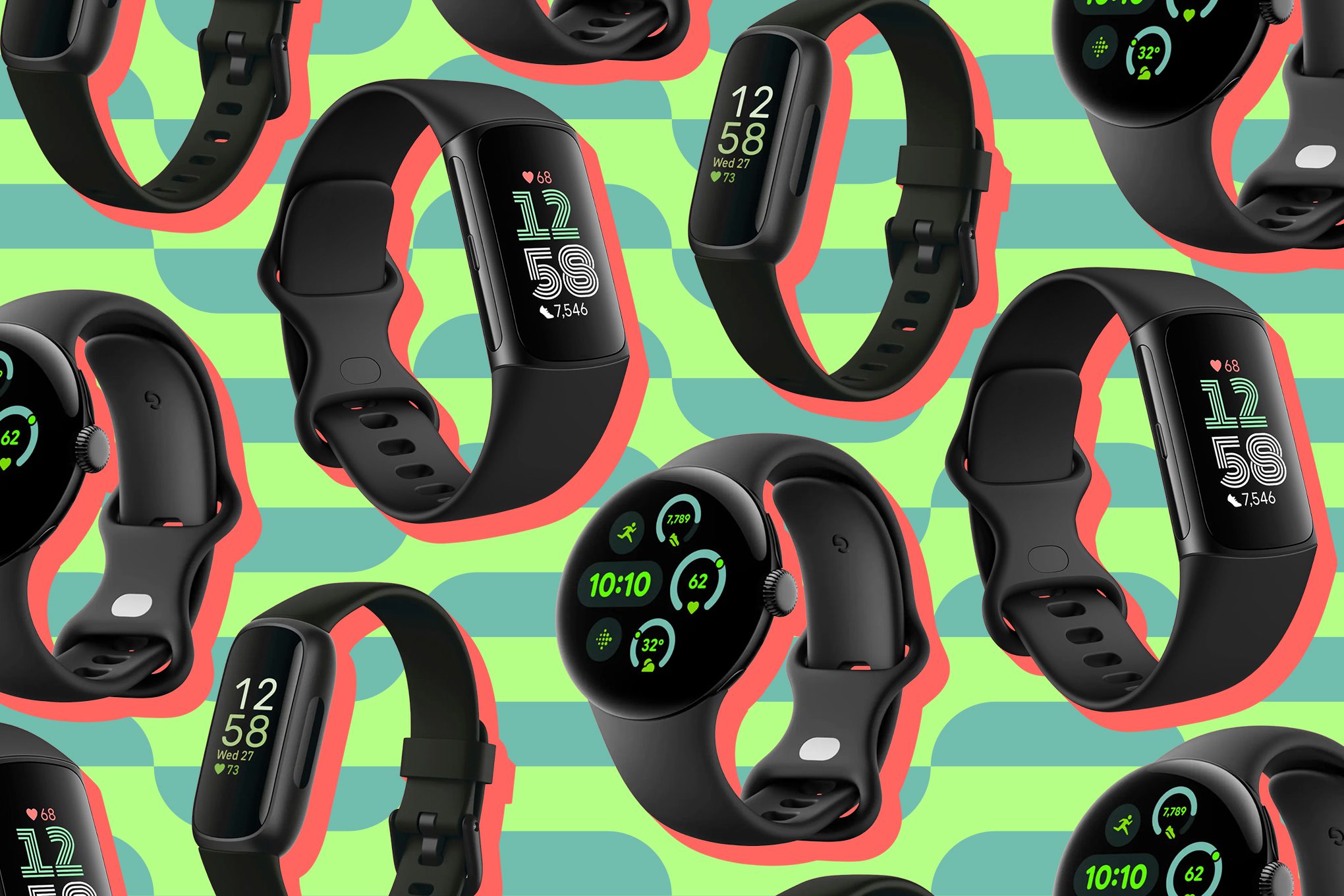Fitbit continues to be a significant player in the fitness tracking market, offering a diverse range of devices that cater to various user needs.
Introduction to Fitbit’s Offerings
Fitbit has established itself as a household name in the fitness tracking industry, providing a variety of products that range from basic fitness bands to advanced smartwatches. Despite its acquisition by Google, Fitbit remains a recognizable brand, known for its user-friendly devices that help individuals monitor their health and fitness metrics. While these trackers may not cater to elite athletes, they are excellent for those looking to maintain an active lifestyle and keep tabs on their overall well-being.
The Transition Period
As of 2025, Fitbit is in a transitional phase, moving from its traditional offerings to a more integrated approach under Google’s umbrella. The year 2023 was particularly tumultuous for Fitbit, marked by multiple server outages and user dissatisfaction stemming from the discontinuation of legacy community features, such as challenges. Furthermore, all Fitbit accounts will soon require Google login credentials, a change that began in 2023 and is mandatory for new devices like the Fitbit Charge 6 and the Google Pixel Watch 4.
In 2024, significant leadership changes occurred within Fitbit, with co-founders James Park and Eric Friedman departing the company amid broader layoffs affecting around a thousand Google employees. This shift has led to speculation about the future direction of Fitbit, especially as Google appears to be focusing more on its own smartwatch line.
Reasons to Stick with Fitbit
Despite the uncertainties surrounding its future, there are compelling reasons to consider Fitbit devices. They are relatively affordable, often available at discounted prices, making them accessible to a wide range of consumers. Additionally, every device comes with a free trial of Fitbit Premium, the company’s subscription service that offers guided workouts, meditation sessions, and access to detailed health metrics. This service is priced at $9.99 per month or $79.88 annually.
With the impending launch of the Google Pixel Watch 4, it is evident that Google is committed to enhancing its wearables. The new smartwatch promises improved battery life, a more repairable design, and compatibility with Fitbit’s upcoming AI-powered fitness coach. However, potential buyers should approach these developments with cautious optimism.
Best Fitbit Smartwatch
Pixel Watch 3 (41mm, Bluetooth)
Score: 8
- Pros: Larger size options, moderate battery improvements, extensive Google integrations, enhanced running features, and no paywall for key metrics.
- Cons: Best performance with Pixel phones, loss of pulse detection limited to Europe.
The Pixel Watch 3, now in its third generation, has significantly impacted Fitbit’s smartwatch lineup. Although technically a Google product, it incorporates Fitbit’s health and fitness features, making it a compelling option for users. The latest iteration boasts a brighter display, smaller bezels, and a new 45mm size for larger wrists, all while maintaining an elegant design.
Fitness enthusiasts will appreciate the improved features for runners, including a dedicated running dashboard and advanced form analytics. The introduction of the Cardio Load metric helps users gauge workout intensity, while the revamped Daily Readiness Score is now accessible without a premium subscription. Additionally, the watch includes a safety feature that alerts emergency services if it detects a loss of pulse.
Integration with Google services enhances the user experience, allowing for offline Google Maps access, Google Home controls, and audio recording capabilities. The Pixel Watch 3 also supports the new Google Gemini AI assistant, which can assist with various tasks, from restaurant recommendations to calendar management.
For those considering an upgrade, the Pixel Watch 4 is set to launch on October 9th, featuring a new processor, faster charging, and improved repairability.
Best Budget Fitbit
Fitbit Inspire 3
Score: 7
- Pros: Excellent entry-level fitness and sleep tracker, vibrant OLED display, lightweight design.
- Cons: Limited features compared to cheaper competitors, large bezels.
The Fitbit Inspire 3 stands out as an affordable option for those seeking a straightforward fitness tracker. Priced at $99.95, it features a color OLED display and a lightweight design, making it comfortable for all-day wear. While it lacks advanced features like built-in GPS and contactless payments, it excels in core functionalities such as sleep tracking and stress management.
With a battery life of up to 10 days, the Inspire 3 is a practical choice for users who prioritize longevity. Accessories, including clip attachments and stylish straps, allow for customization. While the Inspire 3 and the Luxe share similarities, the Luxe has become increasingly difficult to find, making the Inspire 3 a more accessible option.
Best Fitbit Fitness Tracker
Fitbit Charge 6
Score: 7
- Pros: Comprehensive fitness and health tracking features, lower price point, additional app support, improved heart rate monitoring.
- Cons: Battery life issues with always-on display, limited music options.
The Fitbit Charge 6, priced at $159.95, is a robust fitness tracker that competes well with higher-end smartwatches. It features a color OLED screen, built-in GPS, and advanced health sensors, including EKG and EDA capabilities. Notably, it is the only FDA-cleared EKG wearable available for under $200.
While the always-on display is visually appealing, it significantly impacts battery life, reducing it from an estimated seven days to as few as two days. Despite this drawback, the Charge 6 offers excellent value, especially for users who do not require a smartwatch form factor.
New features include improved heart rate algorithms and compatibility with gym equipment, along with apps like Google Maps and YouTube Music. However, the latter requires an additional subscription, which may deter some users.
Best Fitbit for Kids
Fitbit Ace LTE
Score: 8
- Pros: Durable design, engaging games that promote physical activity, voice calls and text messaging with preselected contacts.
- Cons: Requires nightly charging, limited color options.
The Fitbit Ace LTE, priced at $179.99, is designed specifically for children aged 7 to 11. While it tracks active minutes, it also incorporates fun games and family-oriented communication features. The device encourages physical activity by rewarding users with game time for completing active minutes.
With a subscription, parents can access real-time location tracking and messaging capabilities, allowing for safe communication between family members. The Ace LTE is built with a robust design, making it suitable for active kids, and it shares a charger with the Pixel Watch 3.
While the Ace LTE has its limitations, such as requiring daily charging, it offers a unique blend of fitness tracking and entertainment, making it a popular choice among parents.
What’s Coming Next
Google has announced the rollout of the Fitbit personal health coach, an AI-powered fitness trainer that will be available to Fitbit Premium subscribers starting in October. This innovative feature will create personalized exercise routines based on individual fitness goals, sleep patterns, and even injuries. The AI coach aims to provide a flexible approach to fitness, accommodating users’ changing needs.
During a recent demo, the AI health coach showcased its ability to adapt to various life circumstances, such as travel or injury, ensuring users can maintain their fitness goals without feeling overwhelmed. This development signals a significant shift in how Fitbit plans to integrate technology into its health and fitness offerings.
Should You Even Buy a Fitbit Right Now?
Since its acquisition by Google in 2021, Fitbit has undergone several changes, including a mandatory account migration that will take effect in early 2026. While some users have expressed frustration over the removal of social features and the impact of software updates on battery life, the introduction of a redesigned app and AI-powered health coach indicates that Google is still committed to the Fitbit brand.
Despite the challenges, the hardware advancements seen in the upcoming Google Pixel Watch 4 suggest that Google is focused on developing compelling wearable technology. For those considering a Fitbit, it may be worth waiting for the latest models to fully understand how the integration with Google will evolve.
Was this helpful?
Last Modified: September 30, 2025 at 11:42 pm
0 views















